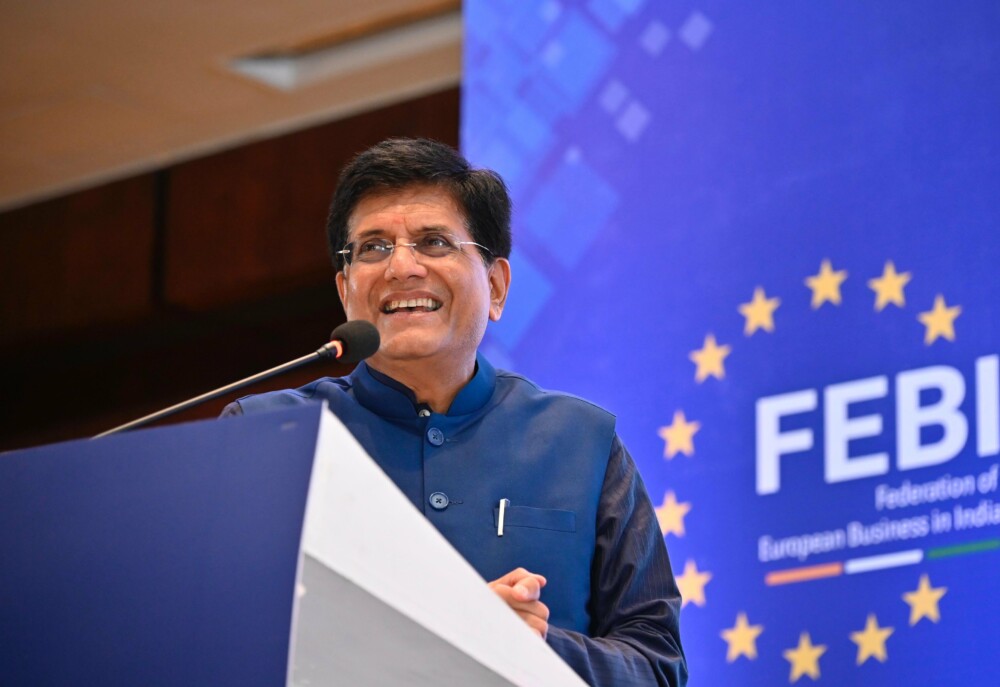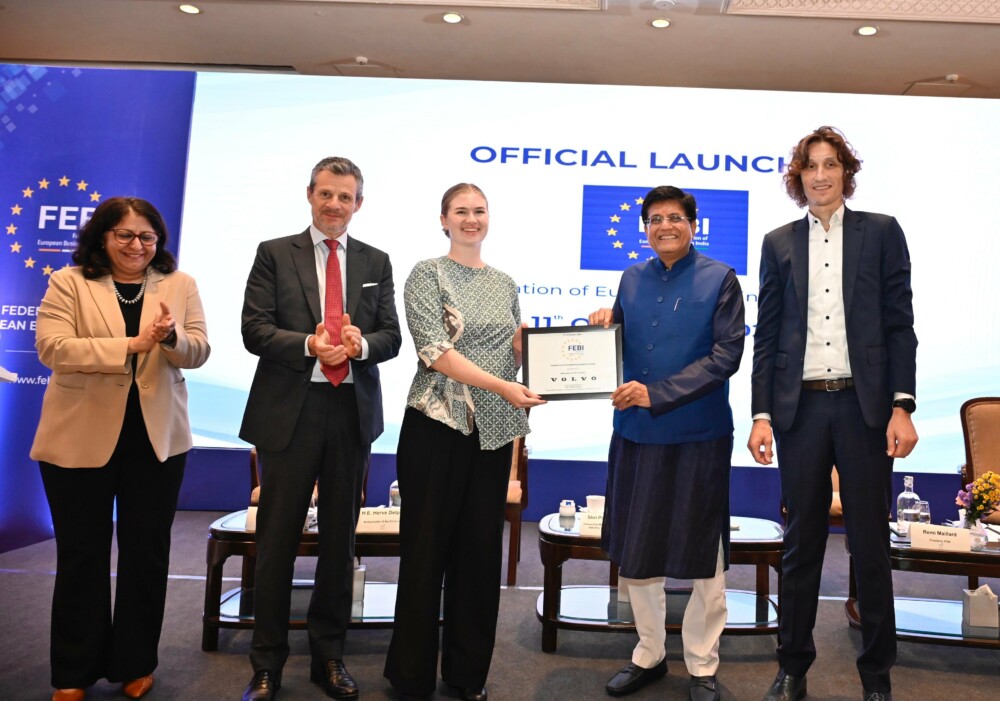
Progress on India-EU FTA ‘marginal’, Piyush Goyal points to ‘irrational standards’ set by bloc
NEW DELHI : Progress in negotiations between India and the European Union (EU) for a Free Trade Agreement (FTA) has been marginal, with “irrational standards” set by the multilateral bloc that are acting as non-tariff barriers for Indian companies, Shri Piyush Goyal, Union Minister for Commerce and Industry, has said.
Speaking at the launch of the Federation of European Businesses in India (FEBI) in New Delhi Friday, Goyal highlighted the difference in positions between the two sides, especially surrounding labour laws in the EU, and the introduction of a number of new regulations by the bloc, including those surrounding deforestation and the carbon border adjustment mechanism (CBAM), due to come into force soon.

“I have companies that come to me and say we have an unviable operation but we are not able to close down that operation in an EU state because the government is not only not cooperating but actually creating hurdles in our business,” Goyal said.
“We have the same problem on standards, where irrational standards are set up by the EU, which act as a barrier to expanding trade between India and the EU. We have people coming and telling us about significant unfair trade practices on the European side,” he added.
Goyal urged for Indian businesses to be able to join the FEBI, a new chamber of commerce launched by the delegation of the EU to India, with members from all 27 member-states of the union.
The minister’s “frank” remarks come mere weeks after the two sides concluded the ninth round of discussions on the FTA, held in New Delhi between 23 and 27 September.
The FTA negotiations, which had started for the second time in 2022, had seen a lot of positive momentum in the early days. In December 2023, EU ambassador to India Hervé Delphin had told ThePrint that he was “confident of reaching an agreement” with India.
“What we are seeing now is two sides really committing and engaging in negotiations, which is a very comprehensive one and therefore a very difficult one by its very nature. It is an agreement which is very consequential for both sides,” he had said.
“I think at this point in time, there is momentum in the negotiations—there are issues to be addressed. I think both sides have to adjust. We are confident that both sides will come and reach an agreement,” he added.
However, Delphin said Friday at the launch of the FEBI that “despite the best efforts of the negotiating teams, progress has been marginal. Fundamental differences are yet to be overcome”.
“Both sides have to re-calibrate. Don’t get me wrong! Recalibrating does not mean aiming at a cheap, low-cost version of an FTA. Interest for both sides should be a meaningful FTA. Both sides must reflect on potential packages of mutual concessions, which would see both parties move into trade policy territory where they have never ventured so far,” he asserted.
The EU, which as a bloc is one of India’s largest trading partners in goods, accounts for roughly 12 percent of New Delhi’s total trade, with roughly 4,500 companies providing employment to 1.7 million Indians directly.
However, an FTA between the two countries remains distant for the time being, especially as negotiations for an agreement originally began in 2007 between the two sides.

